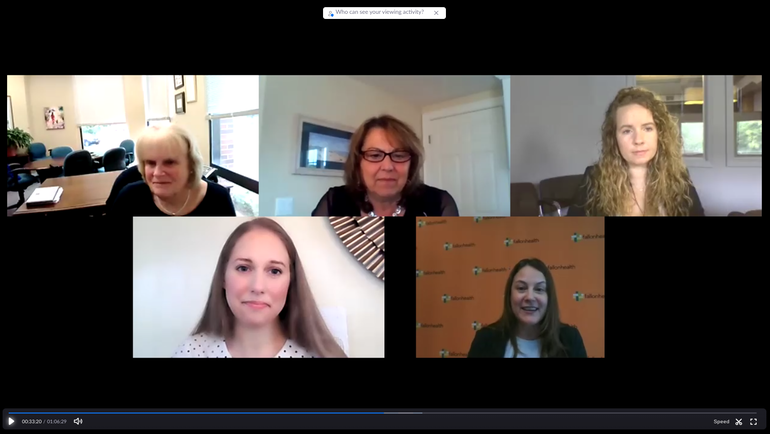In the wake of the coronavirus lockdowns and the changing news of the Delta variant, businesses are facing unprecedented obstacles as they try to bring their employees back to the office and retain a sense of normalcy. Work from home, remote, and hybrid options are just a few of the new models quickly revolutionizing workforces.
A group of Central Massachusetts human resources experts spoke about the employee re-entry process back into the workplace during a WBJ webinar on Thursday entitled “A HR Handbook for the New Normal.” Through their expertise in legal matters and human resources, the panelists discussed the ever-evolving public health issues businesses must contend with and the struggle to retain employees who prefer remote/hybrid work models.
“It is kind of a mixed bag,” Meredith Wise, president of HR services provide The Employers Association of the NorthEast, said about whether employees preferred remote models or coming back into the office. “The challenges and the things that go into making the decision for employers. One of the first ones is culture. How do you work that into your culture and make sure that the conversations and the team spirit really still stays when you have people that are in the office and people that are out of the office?”
Throughout the one-hour discourse, the panelists emphasized the need for constant communication between employees and employers as well as consistent policies clearly outlining an employee’s responsibilities regardless of if they are in-person, remote, or hybrid.
Remote work has given employees unprecedented access to jobs across the country. This unexpected competition has forced companies to find unique solutions to retaining employees. Jill Green Lebow, senior vice president and chief human resources officer at Worcester insurer Fallon Health, described using phone calls and surveys to get a sense of what Fallon employees desired then trying to find the best solutions on an individualized, case-by-case basis.
“We knew that the work habits of our employees were changing, and also our business was changing,” Lebow said.
“Do not give them expectations that cannot be met,” Chelsie Vokes, attorney with Worcester law firm Bowditch & Dewey, cautioned employers.
As employees return to the office, thoughtfulness needs to be given to the treatment of vaccinated and unvaccinated employees, especially with changing U.S. Centers for Disease Control regulations. While vaccine mandates can be part of a company’s workplace policy, reasonable accommodations and medical privacy need to be considered.
“You need to be mindful when you are crafting your policies, not just about the messaging you are disclosing directly, but also the messaging you are sending to your employees when you do treat vaccinated and unvaccinated employees differently,” Vokes said.
While there is not a one-size-fits-all solution for the work re-entry process, the panelists all agreed clear employer communication, individualized HR solutions, and public safety need to be upheld.

